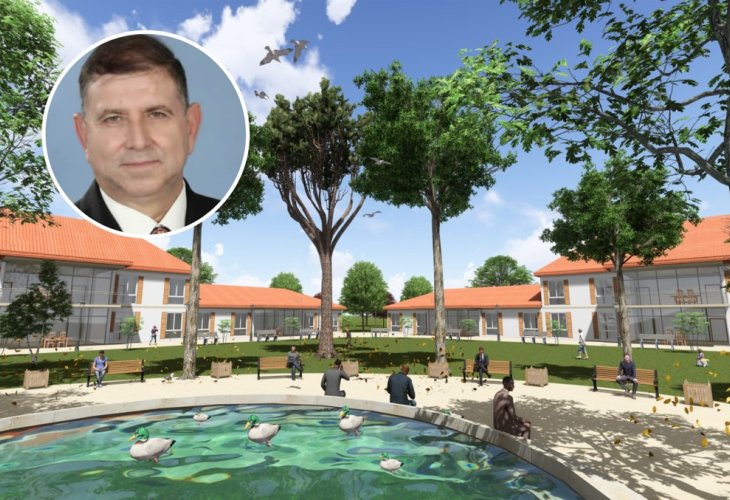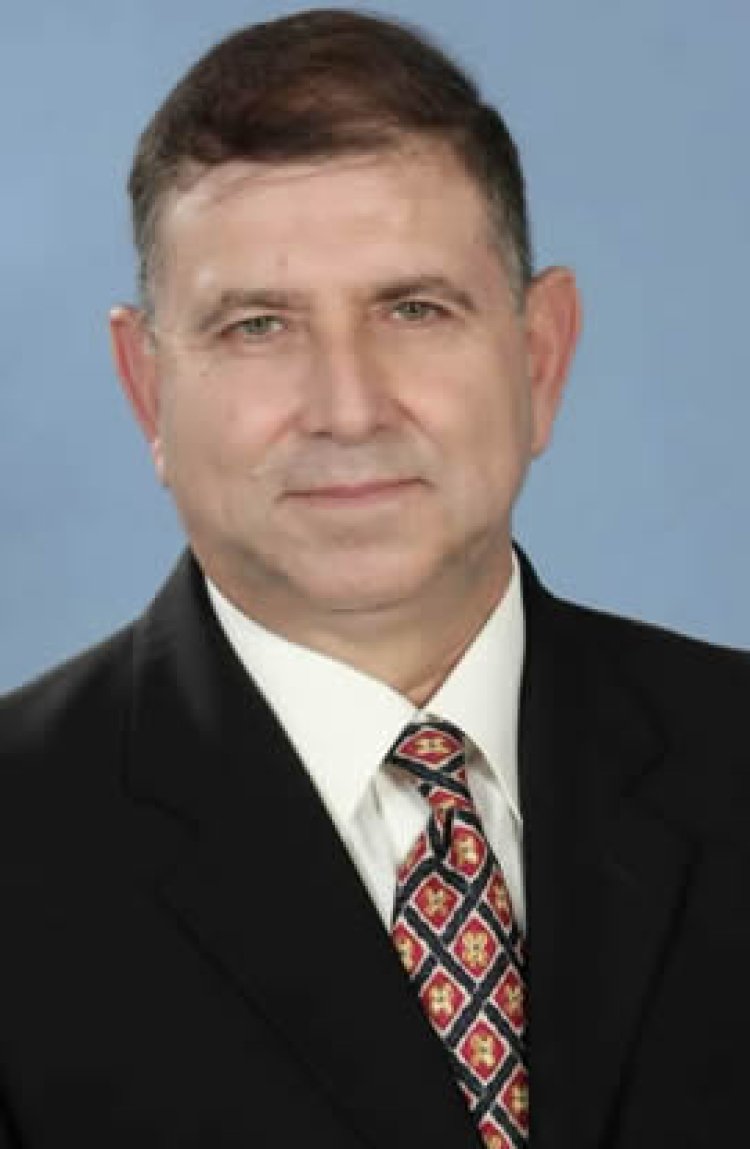Innovative Businessman: "We Will Establish a Dementia Village in Israel"
Entrepreneur Tzahal Levy has been working on a unique initiative to create a special village for dementia patients in Israel, enabling them to live as independently and joyfully as possible. In a fascinating conversation, he details the plan that is set to become reality. But what are the hurdles facing this project?
 Visualization of the village by architect Nathan Kesel. Inset: Tzahal Levy
Visualization of the village by architect Nathan Kesel. Inset: Tzahal LevyWhen it was announced about seven years ago that a special village for people with dementia and Alzheimer’s had been established in the Netherlands, it sounded like a dream. It’s a whole village, with buildings, shops, and even cafes, allowing dementia patients to safely wander and continue their lives as much as possible despite the difficulties and limitations. Anyone accompanying someone diagnosed with dementia knows how much such a solution is the greatest gift one can give to a patient whose memory capacity is declining.
This dream seemed very distant until recently it became clear that there is someone trying to implement this idea here in Israel. This is Tzahal Levy, a businessman who has been involved for many years in initiating and developing projects in the field of medicine, in Europe and other countries.

Living Independently
"I’m a businessman and not a doctor," emphasizes Tzahal, "but the issue of dementia and Alzheimer’s started interesting me about two years ago when I noticed that the number of dementia patients in Israel is increasing over the years, but there is almost no long-term thinking for them regarding budgets and policy. When I checked what's happening abroad—in the USA and Europe—I saw that in many countries the situation is similar to that in Israel, but there are certain countries like the Netherlands, Italy, Canada, and the USA where entrepreneurs have succeeded in establishing suitable and safe villages for dementia patients, thereby providing them with real benefits and rescue. Needless to say, in Israel there is still no similar initiative, so I decided to take on the task and see if it is possible to promote this."
Tzahal’s plan and his partners in the project is certainly inspirational. "We aspire to buy or lease land of 35 dunams and build on it 14,000 built square meters with the goal of creating a real village that will allow people with dementia to live in buildings constructed in the place as independently as possible," he details. "The residents will live as independently as possible, naturally under the full supervision of the staff."
"Some of the village residents will also be able to go to work because there will be places of employment suited to them," he adds. "For example, in the supermarket we will build in the village, there will work three types of people—staff members, volunteers, and people living in the village. There will also be a hair salon, music room, and petting zoo where residents can take their grandchildren when they visit. There will be a kitchen and dining room where residents will eat daily, but of course, anyone who wants to cook at home and is capable can do so by themselves, and we will encourage it."
 (photo: shutterstock)
(photo: shutterstock)Tzahal emphasizes that the idea of the village is not to force people to act, but to encourage them by providing the possibility. "If there is a tenant who loves, wants, and can work in the garden and plant flowers, our volunteers will help them procure the necessary materials and find suitable land, and if there’s someone who wants to wash dishes in the kitchen, they can do it watched over by a volunteer for personal safety. I assume there will also be people who won’t want to do anything, and that’s ok too, because that’s the magic of the place—it will be a liberal and enabling village. Our volunteers and staff will encourage residents to activity to get the most out of their abilities but won’t push them beyond the limit they are capable of or want."
What about partners who are not suffering from dementia? Will they also be able to live in the village?
"Anyone who wants can live in the village, and anyone who doesn’t want can come to the village for many hours a day. Each according to what suits them."
The Bureaucratic Challenge
Tzahal emphasizes that the rationale behind the village is based on other existing villages around the world, where he visited before coming up with the idea, and with some, he collaborates. "There are quite a few studies done on those villages that have proven that this method reduces the dependence of dementia patients, prolongs their lifespan, and even reduces cases of violence," he details.
"When I think about what’s happening in Israel, it is clear to me that this is such a necessary initiative, because as of today, the options for a person with dementia are to remain at home, which can be a significant burden on the family and even becomes more difficult day by day, or move to a nursing home where they will be provided with food and cleanliness, but there will truly be no stimuli to give them a reason to get up in the morning and bring joy into their lives. We are coming from a different approach that says: ‘The disease is difficult and progressive, there is no way to reverse it, but it is possible to invest at least in the time remaining to give these people lives that will bring them more happiness and a will to live.’ Our village will be full of greenery, benches, trees, facilities, animals, and many other things that will allow them to live slightly sweeter lives. It will require thought, but we are fully prepared for this and that is why we are here."
 (photo: shutterstock)
(photo: shutterstock)In villages abroad, they tried to recreate houses from the past and other elements from history to stimulate the memory of the residents. Will you have this in your village too?
"Indeed, we have a similar plan, although not exactly as done abroad, but with much thought about the living environment that will help residents bridge the lives they knew in the past with those they will have from now on. We have many creative ideas and developments that we will promote on this topic."
And when is the village expected to be built?
"At this stage, we are examining the feasibility of establishing the village in the Jezreel Valley area, mainly thanks to the exceptional responsiveness of the council and regional leadership. We have already partnered with organizations and entrepreneurs interested in building the village there, and we are at a very advanced stage. However, this is still not final, and it is possible that the village will eventually be built elsewhere. We continue to examine the possibilities, and we also know the task will take time and won’t be simple."
When Tzahal says these things, he sighs. "Unfortunately, as we advance in the project, we understand how challenging this task will be. It is a first-of-its-kind initiative with nothing similar anywhere in the country, making it so difficult to obtain the necessary permits from the Ministry of Health and comply with all regulations. The truth is, at one point, I was offered to establish the village in neighboring countries, and from what I checked, it seemed really easier and more promising. As a businessman, I think it’s a good idea, but I still have a desire to do it in Israel. Hopefully, we will succeed."

